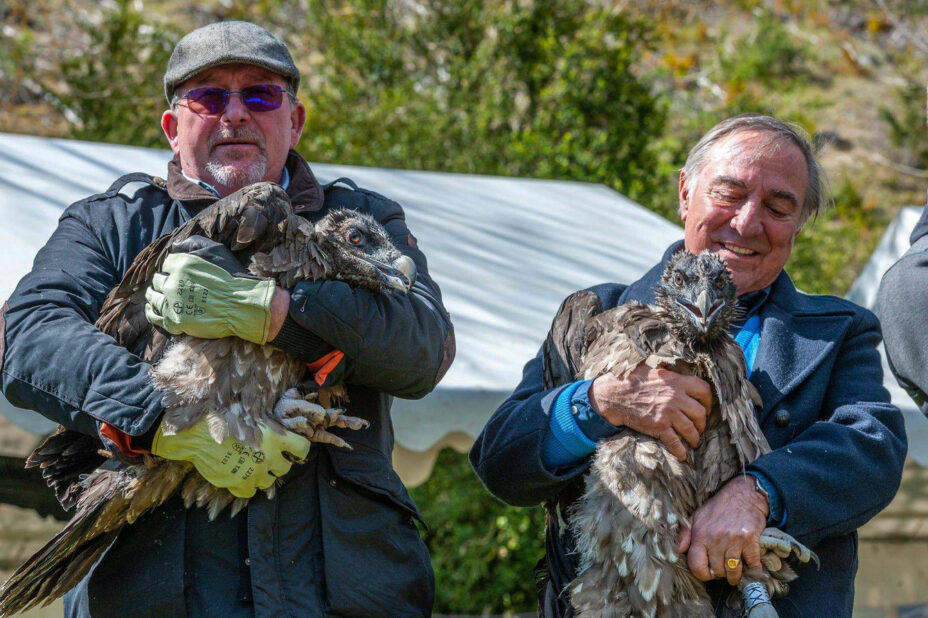The Zoo of Barcelona donated three young male griffon vultures for the Black Vulture Reintroduction Project in Bulgaria (Vultures Back to LIFE14 NAT/BG/649). The birds had hatched in the Zoo. The Zoo of Barcelona also covered the transport costs of the birds, providing significant support for the ongoing vulture conservation activities in Bulgaria.
The vultures were welcomed at Sofia Airport by a team from the Fund for Wild Flora and Fauna (FWFF) and were then transported to the adaptation aviary above the village of Rakitna in Kresna Gorge. They will stay there for a while in order to get used to the area and will then be tagged with satellite transmitters and released into the wild.
Many other European zoos are contribution to this project, such as Zoo Zlin, Praha Zoo, Ostrava Zoo (Czech Republic), Wilhelm Zoo, Zoo Munster, Allwetterzoo (Germany), DierenPark Amersfoort, Burger’s Zoo, Direnrijk (Netherlands), Jerez Zoo (Spain), Zoo de Doué, Saine-Croix Parc Animalier, Paris Zoo (France), all of them part EAZA members.
Captive-bred vultures that are not hand-raised and are instead taken care of by their captive parents are completely able to live into the wild, following a period of adaptation. They can form pairs with other vultures, and are thus often released within vulture restoration programmes. These vultures will certainly play a role in the restoration of their species in the Balkan Mountains and Kresna Gorge. The restoration of griffon vulture is a critical step towards the restoration of the other species of large, rarer, vultures, such as the black and bearded vultures.
The Vultures Back to LIFE project aims to reintroduce the black vulture to Bulgaria and strengthen the population of griffon vulture in the country. Once widespread throughout the Balkans, the black vulture now breeds only in a single colony in the region, in Dadia (northeast Greece), where the population has been stable or slightly increasing (now totalling about 35 pairs) due to the valiant conservation efforts there implemented by WWF Greece.
While the populations in Spain (2,500 breeding pairs), France (35 pairs) and Portugal (10 pairs) have been increasing, the species remains rare and localised in the Balkans, with very few observations outside Dadia. In this project, we will reintroduce the species to the Central Balkan Mountains in Bulgaria – with first releases planned for next year. The project is led by Bulgarian NGO Green Balkans, and will also have as project partners EuroNature, the Fund for Wild Flora and Fauna (FWFF), and the Junta de Extremadura (Spain), as well as the VCF.
The project will combine three well-tested approaches: direct conservation measures aiming at practical work on the ground with the target species; indirect conservation measures intended to provide optimal conditions and minimise identified threats, as well as capacity building and public awareness measures to secure public acceptance and cooperation. Project actions include improving nesting conditions and the food base for vultures (through strengthening wild rodent and herbivore populations and stimulating sustainable grazing practices), as well as working on anti-poisoning programmes and minimising electrocution in powerlines. We are also working with local cattle-breeders, hunters, and national and local authorities towards improving their capacity for contributing to the restoration of this species.
Тhe current project will reach a new milestone in the implementation of the Balkan Vulture Action Plan, while also strengthening the core expertise on vultures in the country and collaboration between Bulgarian and international organisations.





